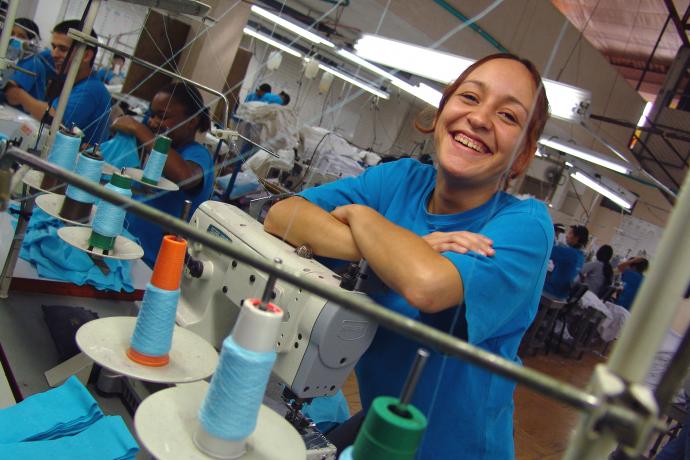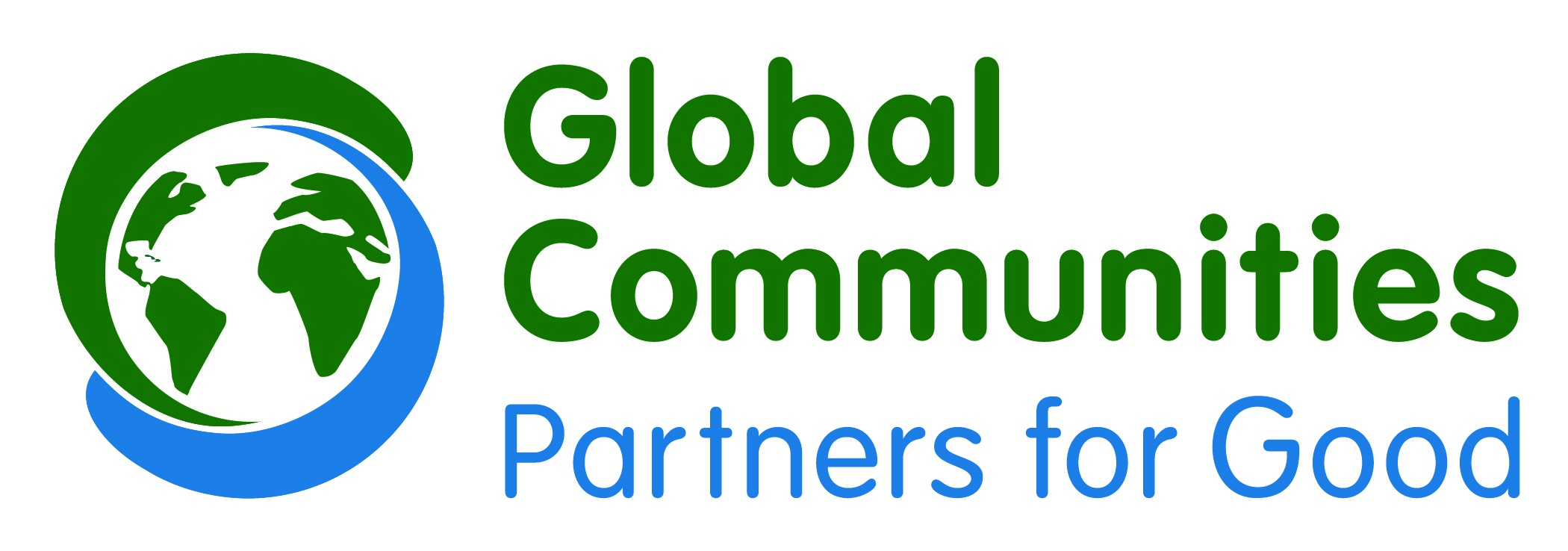What Do You Do When You Are Investing in Your Workforce but Your Suppliers Are Not?
Published 05-01-18
Submitted by Global Communities

With an increasingly globalized economy, many multi-national corporations (MNCs) find it more profitable to outsource production of goods and services to companies operating in countries where manufacturing inputs and labor costs are lower. However, as these efforts continue to grow in size, some MNCs find it challenging to ensure that their products are sourced in an ethical manner.
Suppliers often try to maximize profits by investing very little in their workforce, keeping wages low, providing little to no benefits, and subjecting workers to abuses and unsafe working conditions. The further upstream you go in certain supply chains, the more pervasive the problems are. In addition to guidance from OECD and the U.N. Global Compact, there is a plethora of supplier codes available aimed at addressing these issues. Nonetheless, MNCs must partner with their suppliers and commit to influencing and educating them on the importance of investing in improved labor conditions to increase workers’ productivity and professional success.
Supply chain challenges are too complex to be solved by one organization alone.
Our experience implementing workforce development programs has taught us that partnerships with MNCs, suppliers, and other stakeholders is critical to promote a more efficient supply chain and resilient sourcing communities. In an innovative public-private partnership through USAID, Global communities worked together with Haitian textile manufacturers to improve the manufacturing skills of more than 2,000 Haitian workers involved in the textile industry to upgrade their skills, from basic workplace skills to improved garment manufacturing techniques.
Beyond Monitoring
Today, many MNCs invest in programs that go beyond supplier audits to improve labor conditions within their supply chains. ILO Better Work, HerProject, and Women In Factories are all programs supported and funded by MNCs. They provide workers with the training necessary to be successful in the workplace. However, these programs are often ineffective at helping low-skilled workers, at scale, build a career or advance professionally. In addition, paying for and scaling these types of programs can be a challenge, as they are usually costly, which typically limits supplier adoption and overall program sustainability.
Global Communities believes that more can be done to create a highly skilled and productive workforce, particularly at upstream tiers of the supply chain.
So, what more can MNCs do to achieve these goals? Here are some new ways Global Communities seeks to partner with MNCs, suppliers, and other stakeholders to promote a more efficient supply chain and resilient sourcing communities:
1. Establish clear career pathways and support continuous learning
Workers at the most upstream level of the supply chain tend to be the most vulnerable. They are those often laboring in underground mines, agriculture fields, and production assembly lines, among others. In many cases, they are illiterate or undereducated, yet they represent an essential component of the supply chain. How can their skills be professionalized to help them build a career or advance professionally, if they so choose?
Global Communities suggests that MNCs and their suppliers need to go beyond training and create formal career pathways that begin with jobs at the very bottom of a supply chain. Such an approach requires: involvement of many stakeholders to assess the ways in which various sectors of the supply chain operate; identification of specific skill sets and competencies needed at every level of a career path; and, creation of short-term, business-driven micro-credentials that workers can provide to current and potential employers as evidence of the training they have received, along with related competencies. This is expertise that the organization possesses and will use to transform the supply chain.
For instance, using an integrated youth-led market-systems model, Global Communities in partnership with Mastercard Foundation is working to create economic opportunities and promote entrepreneurship in Ghana’s construction sector for more than 23,000 disadvantaged youth and service providers across the value chain. The program is part of the Youth Forward Initiative which combines market-relevant skills training, mentorship, internships and access to financial services to help young people transition out of poverty and into sustainable livelihoods.
The purpose of creating clear career pathways is to afford workers, especially those at the bottom of the career ladder, the opportunity to move up within a career path or transfer to adjacent sectors based on their competencies. In addition, formalizing the process will elevate the perceived value of these jobs.
Furthermore, Global Communities’ workforce intervention is centered on the belief that a skilled workforce is central to the quality of a supplier’s goods and services, competitiveness, productivity and innovation. Therefore, workers must remain current on new and ideally proven accepted practices. Global Communities encourages MNCs to create partnerships with suppliers, donors and other stakeholders to co-invest in solutions that identify and address performance gaps. In fact, there are a variety of technology solutions on the market designed to help companies and workers achieve such goals. However, it will be crucial to adapt these technologies to workforce needs within critical links of any given supply chain.
2. Invest in technology
Inevitably, technology will continue to disrupt supply chain operations, as we currently know them. Artificial intelligence, blockchain, and robotics are sure to dominate the future of operations and the market will require higher-skilled workers. MNCs that want to be ahead of the curve are already investing in technologies that improve efficiencies and transparency within their supply chains.
Although in its infancy, blockchain technology is leading the way in supply chain innovations at a very fast pace. According to Fortune, Walmart has already run a successful pilot to track its pork supply chain in China with Hyperledger Fabric, a blockchain program developed by IBM. In the coffee value chain, Bext360 is using Bextmachines to track and verify that Ethiopian farmers earn living wages and will share outcomes with Moyee Coffee and its European customers. Likewise, BHP Billiton is using a blockchain solution to better manage its mining processes and enhance its communication with suppliers, based on SupplyChain247.
As new technologies make their way into the supply chain, it is important that sourcing markets have the appropriate talent pool to leverage, operate, and manage them. As such, it is imperative that MNCs invest in ecosystems that generate these talents and build their workers’ capacities.
3. Determine the Return on Investment
Calculating key performance indicators to determine the Return on Investment (ROI) is a common business practice used to measure the efficiency and profitability of an investment. Global Communities adheres to this same business concept as part of its strategy when working in the supply chain as a way to boost program performance, sustainability and adoption. Failing to demonstrate the ROI of any investments heightens the probability that suppliers and other stakeholders will not adopt such practices, or that they will never get off the ground in the first place. As MNCs invest in these programs, they must also allocate funding for evaluation that goes beyond outputs to make sure that ROI performance is verified and that programs are strengthened and adjusted as learning occurs.

Global Communities
Global Communities
Global Communities is a non-profit organization that works closely with communities worldwide to bring about sustainable changes that improve the lives and livelihoods of the most vulnerable. Founded in 1952, Global Communities has broad international reach and scale, having worked in more than 80 countries since our inception.
With decades of experience at the cutting-edge of economic, social and political development, we have considerable technical expertise designing and implementing programs to tackle food security and hunger, financial inclusion, water and sanitation, humanitarian assistance, disaster recovery and reconstruction in some of the most complex and resource-challenged places in the world. We also work very closely with vulnerable women, youth and other disadvantaged groups to ensure access to resources, employment, and education to reduce inequality and promote their full participation in their community.
We seek partnerships with companies, foundations, and governments to support our mission to promote sustainable, community-led solutions to the world’s most pressing challenges.
More from Global Communities

